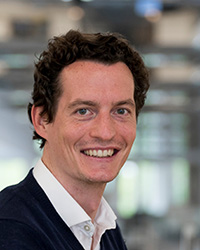| Date: |
24 Jun 2025 |
Venue: |
Online
|
| Time: |
12:30 - 14:30
|
| Type: |
Workshop |
Fee: |
£95 (Members - £85.50) |
Book now
Bookings for Jun course close 23 Jun 2025 at 11am (UK time)
This workshop is accredited with a Certificate of Attendance for continuing professional development (2 CPD hours). To be eligible, the live session must be attended.
Available courses
Course outline
This workshop will provide an overview of what it means for an assessment to be 'valid' and will focus on practical methods for collecting data to ensure that your assessments are meeting their purposes.
The workshop will look to address the following questions practitioners might have:
- What do we mean by the ‘validity’ of assessment?
- How do I collect evidence so that I know my assessment/s are valid?
- What are the most appropriate methods within my timeframe and budget?
In addition to the live session, participants will also be given resources to help them apply their learning from the webinar in their own context.
This workshop is designed for anyone who wants to understand the fundamental ideas that underpin assessment validity and validation. The workshop is intended to be for practitioners who are at an early stage in determining their validation requirements and want to improve confidence in their decision-making. The session will also be useful for practitioners who want to understand the range of data collection approaches that can be undertaken to validate their assessments.
Key learning outcomes
By the end of the workshop you will have:
- Identified where validation is required and useful in your professional practice
- Understood key principles of validation enquiry
- Developed new strategies and methods to guide validation practice
- Knowledge to justify your professional choices based on validation best practice
Course trainer
 Dr Simon Child is Head of Assessment Training at the Cambridge Assessment Network. Previously, he was a Senior Research Officer in the Assessment Research and Development Division of Cambridge Assessment. He has conducted research in the field of qualifications reform and development since 2012.
Dr Simon Child is Head of Assessment Training at the Cambridge Assessment Network. Previously, he was a Senior Research Officer in the Assessment Research and Development Division of Cambridge Assessment. He has conducted research in the field of qualifications reform and development since 2012.
His other research interests include quality of marking processes, curriculum development, formative assessment and Higher Education. His background is in developmental psychology. In 2011, he received his Ph.D from the University of Manchester, which focused on the development of symbolic cognition in pre-school children.